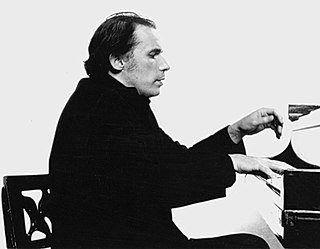Top 52 Quotes & Sayings by Glenn Gould
Explore popular quotes and sayings by a Canadian musician Glenn Gould.
Last updated on April 14, 2025.
I love the early sonatas; I love the early Mozart, period. I'm really fond of that moment when he was either emulating Haydn or Carl Philipp Emanuel Bach or anybody but himself. The moment he found himself, as conventional wisdom would have it, at the age of 18 or 19 or 20, I stop being so interested in him.
Concert pianists are really afraid to try out the Beethoven Fourth Concerto if the Third happens to be their specialty. That's the piece they had such success with on Long Island, by George, and it will surely bring them success in Connecticut. So first there's tremendous conservatism. And then stagnation sets in. Or it certainly did in me.
I tend to follow a very nocturnal sort of existence mainly because I don't much care for sunlight. Bright colors of any kind depress me, in fact. And my moods are more or less inversely related to the clarity of the sky, on any given day.... my private motto has always been that behind every silver lining there is a cloud.
The prerequisite of contrapuntal art, more conspicuous in the work of Bach than in that of any other composer, is an ability to conceive a priori of melodic identities which when transposed, inverted, made retrograde, or transformed rhythmically will yet exhibit, in conjunction with the original subject matter, some entirely new but completely harmonious profile.
Theirs [the Beatles] is a happy, cocky, belligerently resourceless brand of harmonic primitivism... In the Liverpudlian repertoire, the indulged amateurishness of the musical material, though closely rivaled by the indifference of the performing style, is actually surpassed only by the ineptitude of the studio production method. (Strawberry Fields suggests a chance encounter at a mountain wedding between Claudio Monteverdi and a jug band.)
I don't know what the effective ratio would be, but I've always had some sort of intuition that for every hour you spend in the company of other human beings, you need "x" number of hours alone. Now, what "x" represents I don't really know; it might be two and seven-eighths or seven and two-eighths, but it is a substantial ratio.
I think that if I were required to spend the rest of my life on a desert island, and to listen to or play the music of any one composer during all that time, that composer would almost certainly be Bach. I really can’t think of any other music which is so all-encompassing, which moves me so deeply and so consistently, and which, to use a rather imprecise word, is valuable beyond all of its skill and brilliance for something more meaningful than that — its humanity.




















